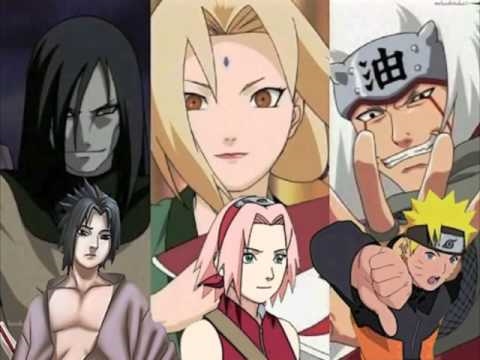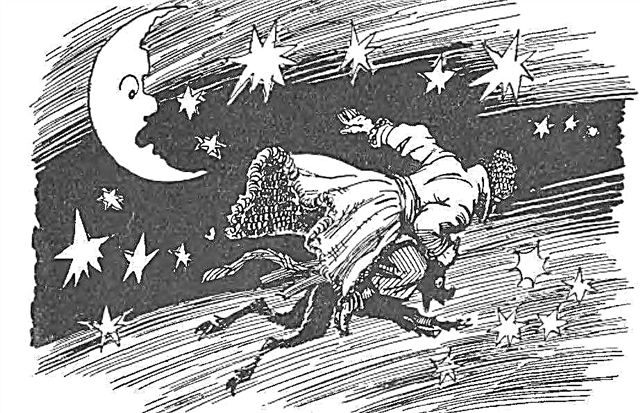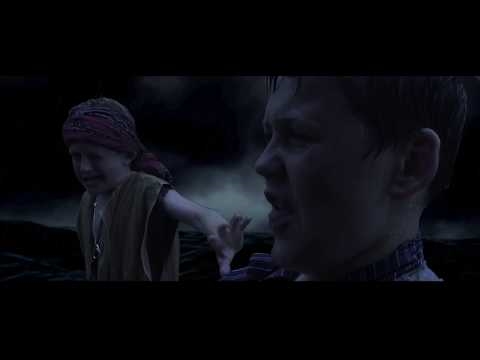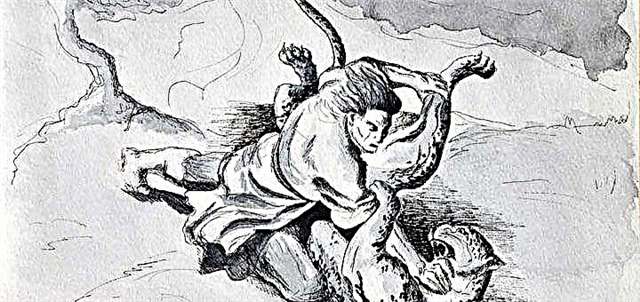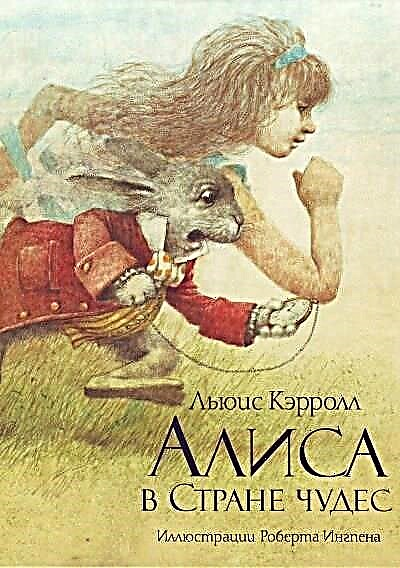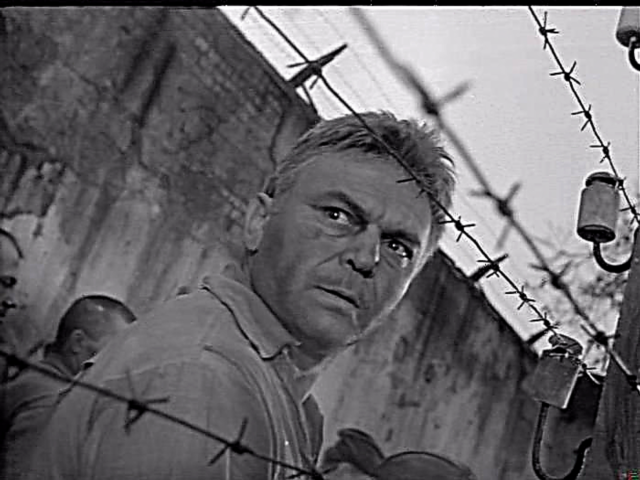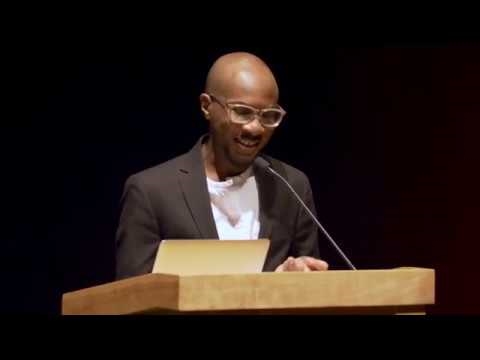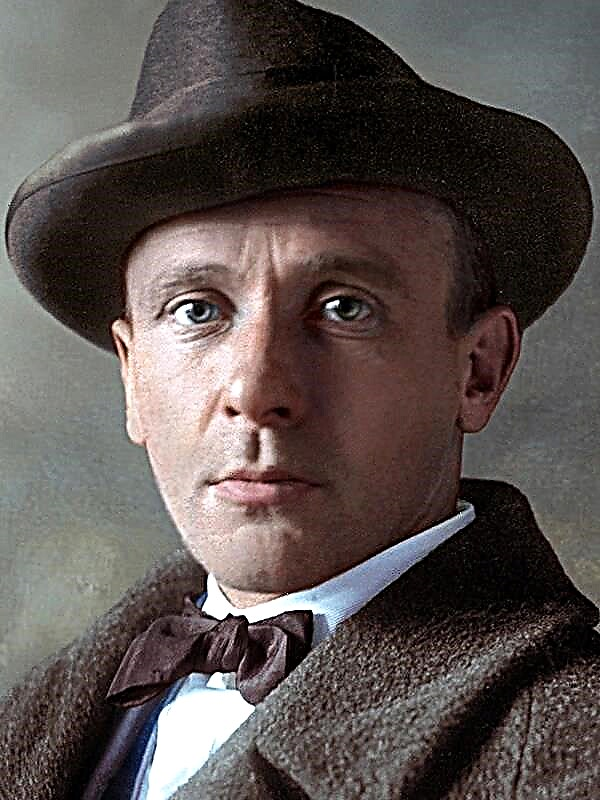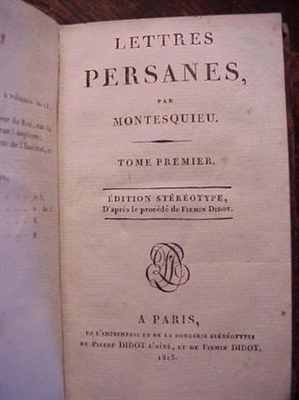: A cunning wolf slaughter cattle of nearby farmers, and no hunter can kill him. The narrator kills a wolf friend and catches a predator with her body. The wolf dies in captivity, yearning for a girlfriend.
The narration is conducted on behalf of the narrator - a former hunter.
The end of the XIX century. In a mountainous state in the southwestern United States, there was a huge old wolf named Lobo, a thunderstorm of all nearby cattle breeders. The Lobo pack was small - five wolves, as large as the leader. The beautiful white wolf Blanca, Lobo's friend, was in the pack.
Every day, the flock killed the best cow in the herd, which led the herders to despair.
... when the loud roar of the old wolf leader was heard in the gorge, anxiety overtook the shepherds, and they knew that in the morning they would have to hear about new devastations in the herds.
More than once they tried to poison at least one of the Lobo pack, but the old wolf sensed poison and allowed the wolves to eat only what they procured. Lobo was only afraid of people with firearms.
One day, a cowboy saw a flock kill a young cow. He dispersed the wolves, poured poison on the carcass and drove away, hoping that the wolves would return and eat the poisoned meat. Returning to that place in the morning, the cowboy was surprised to see that the wolves ate everything except the poisoned parts.
A reward was awarded for Lobo's head, which soon reached thousands of dollars. Tempted by a considerable sum, a well-known hunter arrived from Texas with a huge pack of wolfhounds. A pack of Lobo lured dogs into river canyons and killed half of the pack. The Texas hunter made two more attempts to kill Lobo, during one of which he lost his horse, suffered a complete defeat and returned home.
A year later, two more hunters appeared behind Lobo's head. One brought a new poison, the other decided that the old wolf was a werewolf, and applied a special spell against it. But neither new poison nor witchcraft helped destroy Lobo.
These stories aroused curiosity in the narrator. He used to hunt wolves, and now, breaking away from his main job, he decided to try his luck. In the fall of 1893, he went to visit his friend, a farmer who lives in the place where the Lobo flock lived.
Having examined the area, the narrator quickly realized that it was pointless to pursue Lobo with dogs and horses, and he would have to hunt with the help of poison and traps. To kill the “werewolf”, the narrator used all the hunting tricks he knew, but Lobo could even smell the poison, encapsulated in airtight capsules. He gathered the bait with these capsules into a pile and scornfully tagged it.
Once there was a case proving the mind and experience of the old wolf. Predators from the Lobo flock did not eat sheep, but killed them for fun. Usually the sheep are very stupid and dutifully follow the leaders. Local farmers used goats as leaders, placing them in sheep flocks.
A flock of Lobo attacked such a flock.The sheep did not run away, as usual, but crowded around their leaders. And then old Lobo killed all the goats. The sheep ran away, and the wolves, amusing themselves, caught them one at a time.
Finally, traps bought by the narrator came, and he began to arrange them on the paths that the flock used. However, each time Lobo found and neutralized them.
Soon, the narrator noticed that Blanca poorly obeyed the leader Lobo, and came up with a cunning plan. He slaughtered a cow and set some notable traps near it. The narrator set the remaining traps at a distance, carefully masked them and tied them to a cow's head. He hoped that Blanca would not obey Lobo and would approach his head.
And so it happened. Blanca fell into the trap, and a heavy head prevented her from going far. The hunters quickly caught up with the white she-wolf and killed her. Lobo could not overcome the fear of firearms and save his girlfriend.
Using the body of the she-wolf, the narrator lured Lobo into a trap, and he finally fell into the trap.
He lay completely helpless, and around him there were many traces indicating that cattle gathered here to mock the fallen despot, but hesitated, however, to approach him.
When the hunters discovered the helpless Lobo, he howled, calling for a pack of help, but no one came. The narrator decided not to kill Lobo, tied him up, took him to the camp, gave him food and water, but the old wolf did not touch the treat. He no longer howled, knowing that the pack had abandoned him.
The rest of the day and night Lobo lay, oblivious to anything. In the morning, the narrator discovered that the old wolf had died.Lobo’s body was placed next to the remains of Blanca so that no one would tear them apart.
The retelling is based on the translation of N. Chukovsky.

